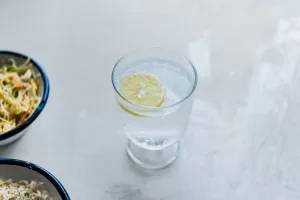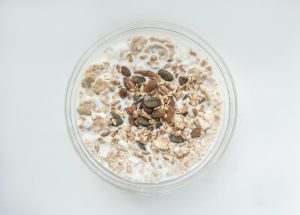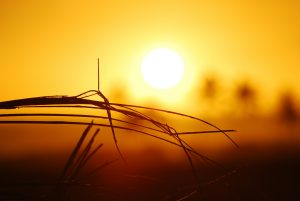
I don’t know many adults who don’t love sparkling water. I don’t know whether bubbles are having a generational popularity surge, or I’ve just reached that age where friends are enjoying it as a preferable vice in lieu of soda, beer, or other intoxicants we’ve all but ditched for better health. I’m pretty sure it’s both factors, and especially ever since the quieter life of parenthood and middle age, my wife and I both anticipate with great pleasure, our respective “sparklings” once our toddler is finally asleep for the night.
First, the obvious: Is sparkling water healthy?
Yes and no. My teacher, Dr. Suzanne Robidoux, suggests that people who gravitate incessantly to sparkling water probably suffer with a great deal of dampness in their stomachs. The carbonation causes gases to move, which helps to temporarily dissolve the dampness, and beyond being delicious, they feel better. Take note of what you’re eating when you have a strong craving for these gases—it is probably a damp-causing food. Conversely, people who feel bloated or uncomfortable in drinking the bubbles probably suffer with a “dry stomach,” one that is lacking in healthy fluids and/or digestive acids, and can’t handle the gases as well.
This informs us that (the gases in) sparkling water has a drying effect, which is not the worst thing if taken in moderation, but if over-indulged in over time, can have deleterious effects. Let’s be honest: Nobody actually believes these often flavored, commercial sparkling waters could possibly be as clean and neutral for our organs as plain, room temperature water, right? My opinion is as long as we limit ourselves to 1-2/day and are additionally giving to our bodies plenty of plain, clear water, we should be fine.
With that said, there are recent reports that many sparkling waters are laden with PFAS, or polyfluoroalkyl substances, which are manmade chemicals that have been around only since the 1940’s. Nicknamed, “forever chemicals,” they are thought to not break down in the human body and accumulate over time, potentially causing a wide array of serious diseases. These chemicals are found on non-stick pans as well as pizza boxes, as if the white bread, mozzarella, and inorganic (nightshade) tomato sauce wasn’t inflammatory enough.
Knowledge is power, and fortunately these same recent reports have informed us of which major companies’ waters tested positive for such chemicals, and which tested negative. Apparently, brands to avoid include Perrier, La Croix, Poland Spring, Bubly, Polar, and Topo Chico, once topping the charts with levels of 9.76! So, if you go to a Mexican restaurant, you’re probably better off with tequila than a fresh bottle of Topo Chico water.
Safe brands include Spindrift (which uses real fruit to flavor!), Mountain Valley (which has previously been ranked the cleanest water in the country, bubbles or not), Pellegrino (the classic!), Waterloo, and Sound.
I would post a link to some of the articles I referenced to get this information, but there are so many that are so easy to search online. I recommend doing so if you love your daily bubbles and wish to read more. Hope all are enjoying the summer!





